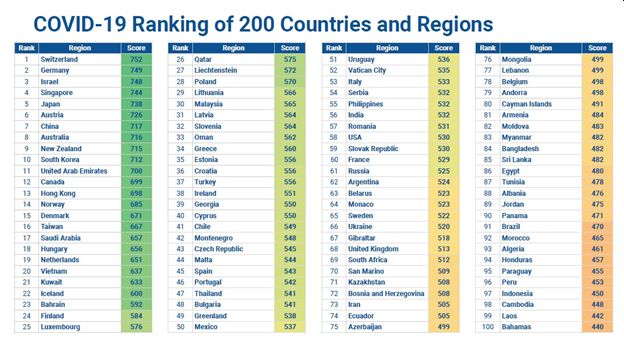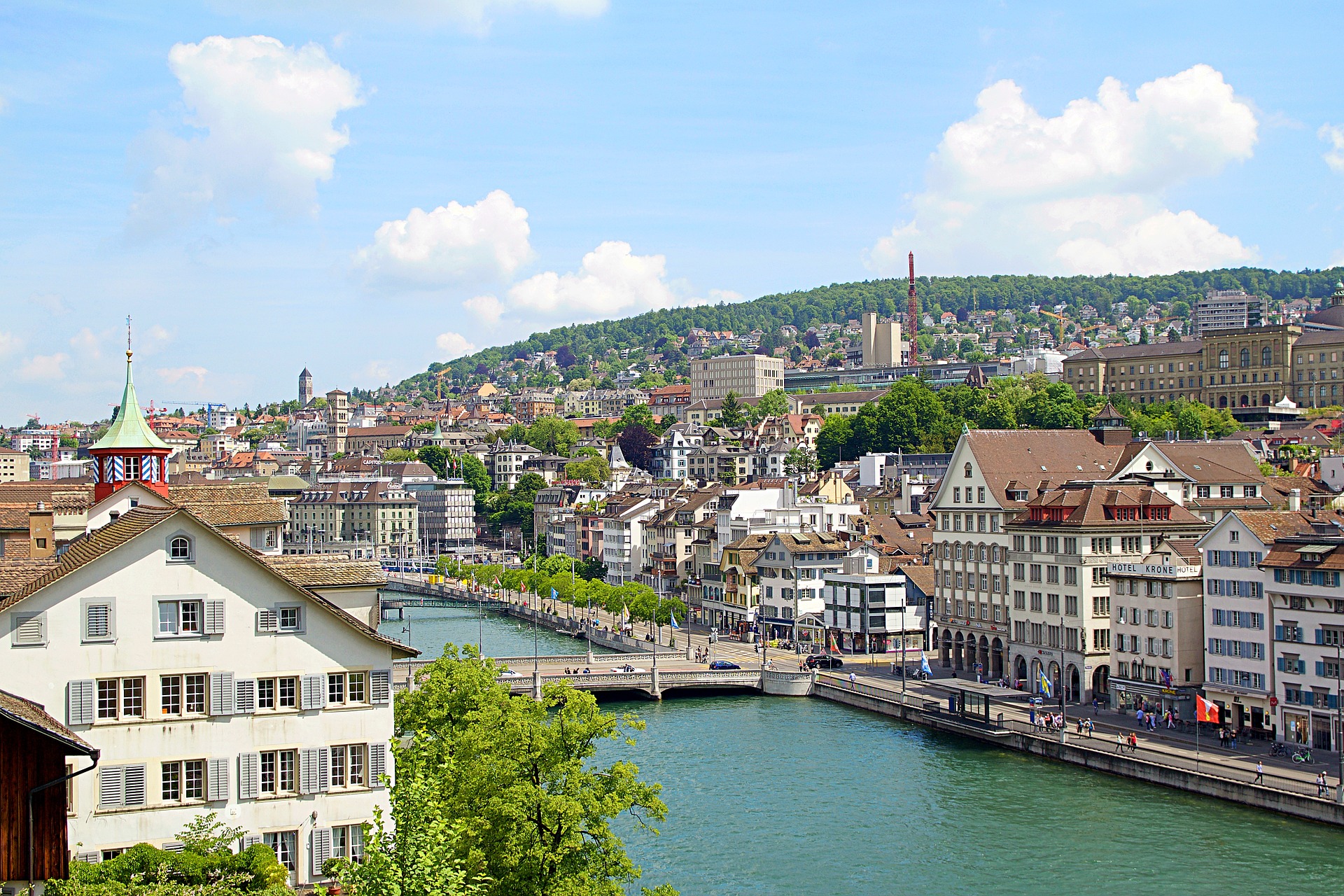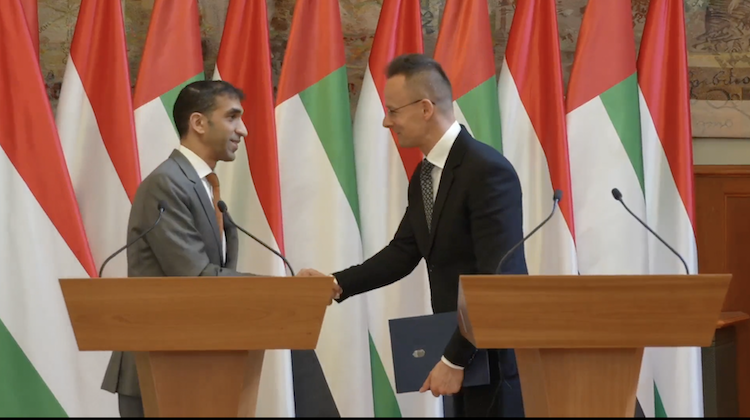Switzerland has a reputation for being economically resilient and responsible – and it has now been named as the world’s safest country from COVID-19.
It scored highest for availability of medical, economic and technological resources to monitor, detect and neutralize the pathogenic agent causing COVID-19 within their own borders and establish programs that attempt to maintain economic and social security, and stability.
Another European country, Germany, is second and Austria is in sixth place in the ranking from Deep Knowledge Group. Check out where your country appears on the list.

The extensive report examined economic, social and health stability in 200 regions, countries and territories. In all, 20 regions/countries gained top-tier status.
It also assesses the strengths, weaknesses, opportunities, and threats or risks that they present against the global health and economic crisis triggered by the Coronavirus.
The report looked at more than 130 quantitative and qualitative indicators and more than 11,400 data points.
Initially, the most responsive countries and those which acted early to put a track and trace system in place ranked highest, now countries with resilient economies are moving up the rankings.
Switzerland went into lockdown from 17 March -19 June and now operates according to “special measures”. As of 6 July it has had 32,315 confirmed cases and 1,965 deaths. Even so, President Simonetta Sommaruga says it is still seeking the right balance between protection and freedom.
Germany has had 197,633 cases and 9,086 deaths and Austria has seen 18,365 cases and 706 deaths.
Critical factors
The report concludes, “This finding strongly exemplifies the conclusion that one of the most critical factors impacting regional safety is not the general level of different region’s theoretical capacity to withstand and neutralize national emergency situations, but rather the specific policies and crisis management strategies and tactics they employ.
“Regions which began closing borders, lockdown mandates and economic freezing measures comparatively late in the overall pandemic timeline, which continue to prioritize economic recovery over public health and safety, which do not utilize sufficiently widespread testing, and which do not proactively build bridges across government departments and across the private and public sector to strengthen surplus healthcare resources against the threat of future outbreaks consistently score lower than one would expect considering their raw resources, capacity and potential to maintain and optimize regional safety amid the current pandemic.”
European countries lead the rankings with Switzerland and Germany, but most other countries score average marks, with a few low ones. Eastern Europe benefitted from early lockdown implementation.
Looking at the countries in which Consorto is based, Netherlands came in the top 20 and Estonia is 35th.
Some countries, including France and UK, should score well, given their strong health systems, technological sophistication and capacities for stringent monitoring and detection and other critical factors, but are in mid-table at 60th and 67th places, respectively.
Key security issue
It is a key security issue that the reopening process of national economies is carried out with caution, assessing the potential and intensity of future outbreaks, and continuing widespread and aggressive testing, monitoring and detection efforts, otherwise all the sacrifice and joint work of citizens, governments and organizations will have been meaningless, the report suggests.
“Despite this fact, many governments appear to be prioritizing economic concerns over healthcare priorities, easing partial lockdowns and reviving economies without giving sufficient signs of caution and without corresponding increases in testing.”



